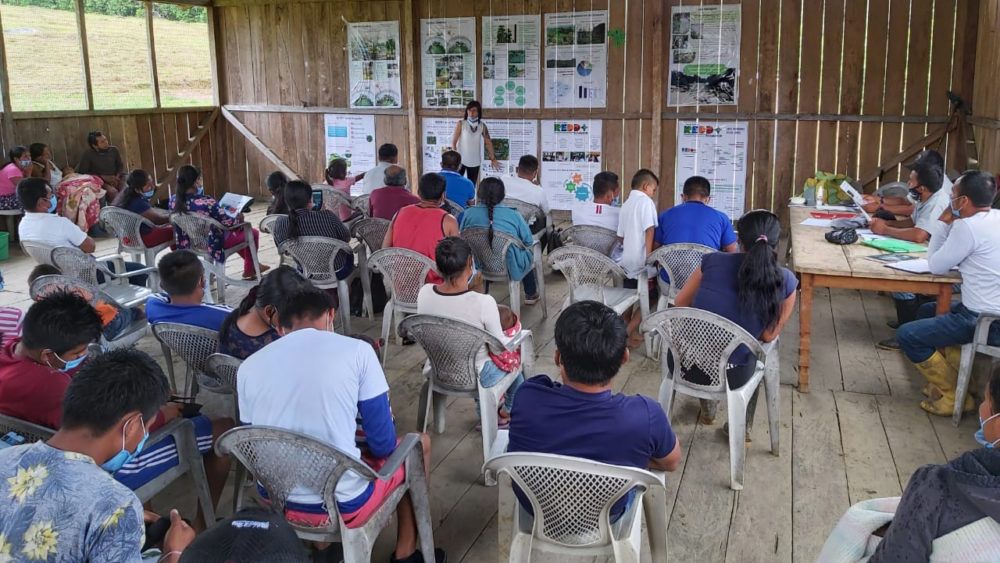Eight years after its creation, it is possible to say that the REDD+ Working Table has accomplished its work. This space has managed to integrate the vision of various social actors linked to forests in the national REDD+ policy (REDD+ Action Plan, Bosques para el Buen Vivir 2016-2025), and to have a direct channel of access to information and dialogue with the National REDD+ Authority.
“The most remarkable thing about the REDD+ Working Table is to have this space where the Ministry of Environment and Water of Ecuador and social organizations can talk and discuss their different needs in the framework of building a public policy process, and something very important is to see how the space has evolved… at the beginning there were few members, now we have more members who come from different places, with different visions and that is what enriches this space,” Patricia Serrano, Manager of PROAmazonía.
The REDD+ Working Table emerged in 2012 to become a national platform for dialogue between the National REDD+ Authority, indigenous peoples and nationalities, Afro-Ecuadorians, Montubios, civil society and the private sector. The objective was to ensure that the REDD+ readiness phase has the vision and input of all stakeholders, both those with forest harvesting rights and the agents of direct and underlying causes of deforestation and forest degradation.
The REDD+ Working Table was institutionalized in the Ministry of Environment and Water under ministerial agreement[1] in 2017, and to date has three periods of operation.
In 2020, despite the health emergency caused by the COVID-19 pandemic, the Ministry of Environment and Water of Ecuador, with the leadership of the Undersecretary of Climate Change and the support of PROAmazonía, managed to launch the call for the reconfiguration of the space, as a result, the 3rd period of the REDD+ Working Table began with two ministries: the Ministry of Environment and Water and the Ministry of Agriculture and Livestock, 41 social organizations, four invited groups, and two REDD+ programs.
REDD+ Working Table, Third period 2020-2022
In its third period, the REDD+ Working Table kicked off on June 22, 2020, with an inauguration event and a virtual course for new members, as a preparatory phase for the start of its operations in September 2020.
During the past year, several activities were carried out with local, national and international organizations with vast experience in forest conservation and sustainable forest management. Among the actions carried out, the following stand out: virtual courses for new members, the 1st and 2nd exchange of member organizations, and face-to-face workshops with indigenous communities in Twintza and Tena.
ACTIVITIES THAT HAVE BEEN CARRIED OUT
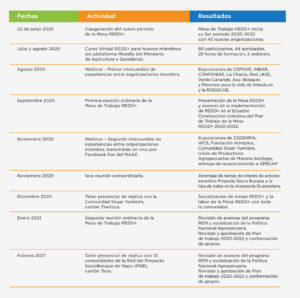
And although social distancing and mobility restrictions due to the COVID-19 pandemic did not allow the REDD+ Working Table to meet face-to-face, this was an opportunity to learn about the use of information technologies and interact through other platforms. This required an important effort by the REDD+ Working Table’s Management Team to provide possibilities to social actors with less access to virtual channels, both due to connectivity difficulties and limited use of digital tools. Likewise, it demanded that community organizations adapt to this new virtual modality.
From these meetings, the work plan of the REDD+ Working Table 2020 – 2022 was established, which has the following general objectives: Consolidate the space as a mechanism for national dialogue between the State, civil society, and the private sector for forest conservation and sustainable production in Ecuador. The scope of participation will be focused on: the implementation of REDD+ policies and actions, social and environmental safeguards; expanded participation for stakeholders with national representation, linkage with other REDD+ governance mechanisms; accountability and access to information on the progress of project and program implementation; among others.
REDD+ WORKING TABLE
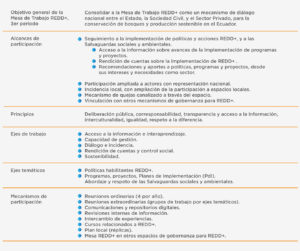
Within this framework, the topics of greatest interest to the stakeholders of the REDD+ Working table, and which are part of the Work Plan for review, are: enabling policies for sustainable forest management, the Socio Bosque Program, the country concept of sustainable and deforestation-free production, the governance model for REDD+, the 2nd National Forestry Assessment, among others.
In turn, at the level of REDD+ programs, projects and implementation plans, the MAAE and the implementing organizations must share detailed information on the progress of their management at all regular meetings of the REDD+ Working Table, as well as the socialization of opportunities for access to benefits by the sectors they represent.
Finally, at the level of social and environmental safeguards, a local plan will be developed to bring the Working Table to the Member organizations that require it, helping to extend this participatory process to the grassroots. To this end, working groups have been formed for gender, social and environmental safeguards, and others, which will provide inputs and recommendations to all processes carried out by the MAAE, which are related to REDD+.
Thus, the REDD+ Working Table has an important role in monitoring the implementation of REDD+ measures and actions in Ecuador, from civil society, academia, indigenous peoples and nationalities, Montubios, women, youth and the private sector. Also, to ensure that the initiatives respond to the interests and realities of the sector/group they represent. Another of its functions is to contribute to the transparency of the process, the strengthening of management capacities of its organizations, and the generation of spaces for dialogue in their bases and territories around REDD+, in order to bring all of these recommendations to the plenary session of the REDD+ Working Table.
MEMBER ORGANIZATIONS – THIRD PERIOD
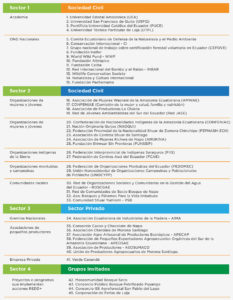
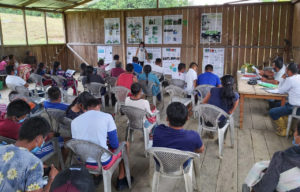
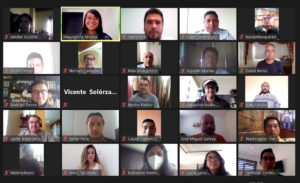
Photography: PROAmazonía archive images
Description: Meetings held within the framework of the REDD+ Working Table Ecuador
[1] Ministerial Agreement No. 049. Establish the REDD+ Working Table and the guidelines for its operation.
Author: Magdalena Muñoz – Specialist in stakeholder involvement and participation PROAmazonía
 Español
Español English
English
